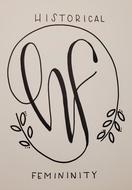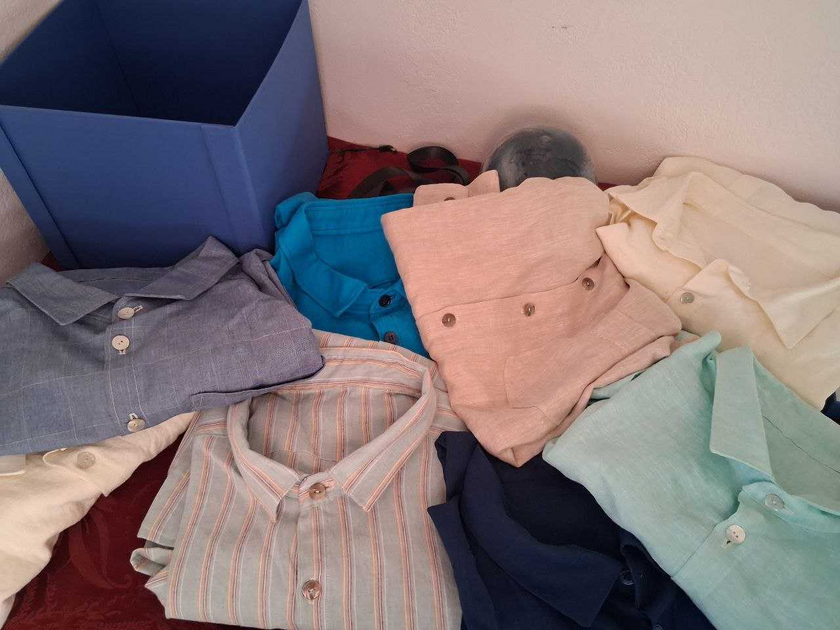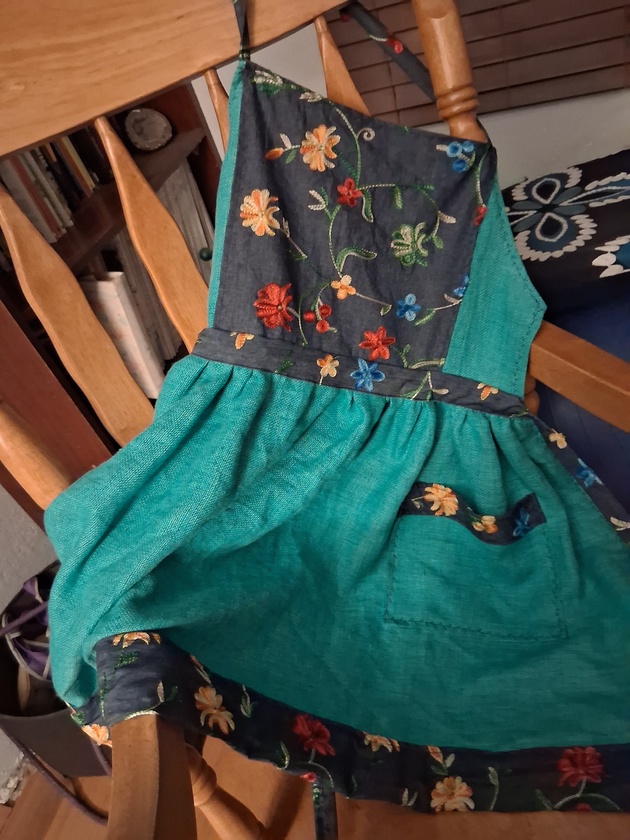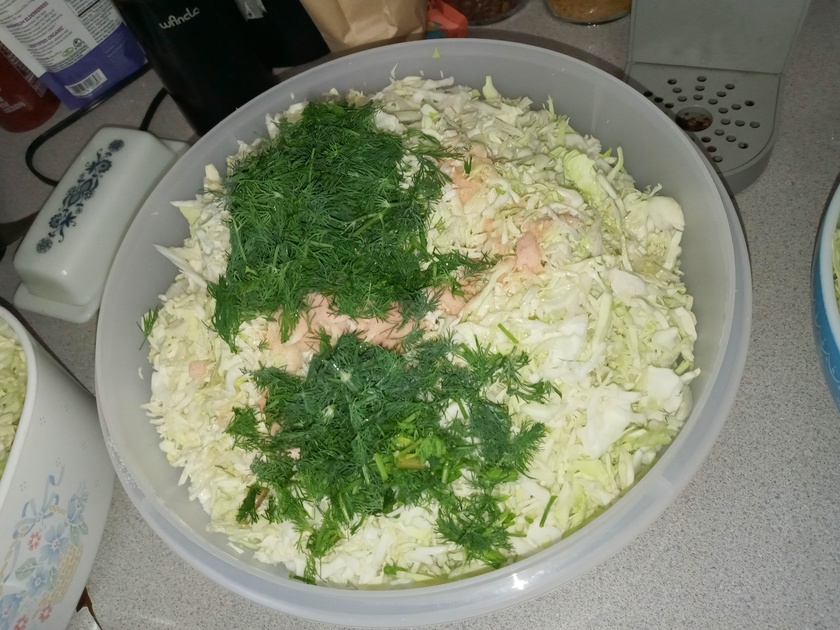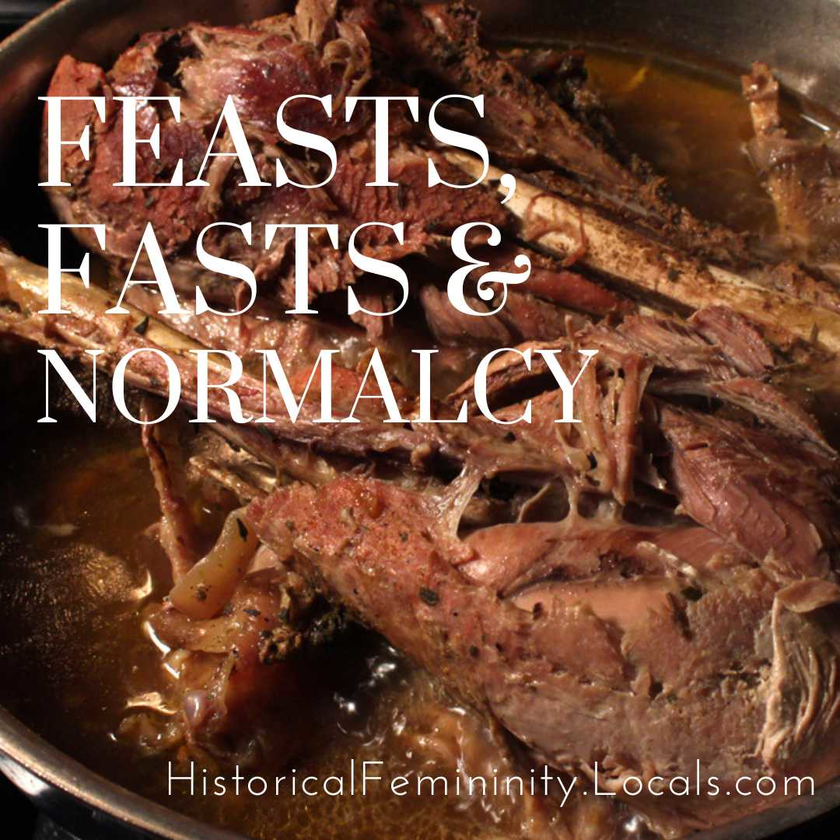I take my job of Health Maintenance Officer pretty seriously. Providing my family with probiotics is always important, as is providing delicious vegetable sustenance. To add to that, my husband has been on antibiotics continuously for going on two months now, so I don't need "a little kraut" - I need a lot. (I'm feeling prebiotic refrigerated potato + probiotic kraut in a potato salad, any other ideas are welcome).
We eat an enormous amount of sauerkraut anyway. And I give it away - the dill/garlic is particularly popular. (Cabbage may be the cheapest form of community builder there is - well, maybe after lemons).
So, here's how I make my kraut and a general timeline. I've been at it for about 2 hours today so far, there's another hourish to go today, I expect, and then another hourish in a couple of weeks.
FIRST: I get all my supplies together, and I clean them. My kraut is not canned, and I do want the bugs, but I do not want nastiness. Of course everything is put away clean. I wash it again anyway. I then pour boiling water over everything and leave it to air-dry. (This is called 'scalding'). By the time I've done this, cleaned up the kitchen, gotten all my ducks in rows, I've eaten up at least 45 minutes of prep. (I have a very small kitchen, so there's a lot of steps involved in this).
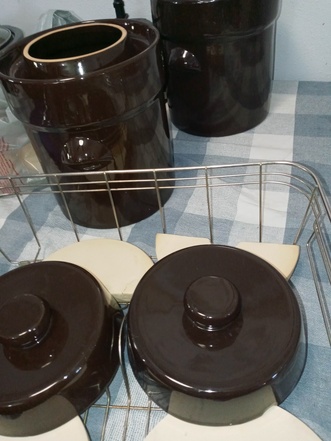
SECOND: I make a gallon of brine. 1/2c salt to 1 gallon boiling water. (You want to use distilled water or boil it or leave it overnight to evaporate the chlorine. My water is very heavily chlorinated, and I didn't do this overnight, so I did it while I was scalding everything else - the water will be cool enough to use by the time it's time for brine-insurance.) I used to make a teeny tiny quart of brine and really push my cabbages to juice up, but I get better results (and less stress) from having a gallon on hand. In theory, if you used fresh juicy cabbage, you wouldn't need brine. Grocery store cabbage always has needed at least some.
THIRD: I get my cabbages out and start shredding into Very Large Containers. (When I work with each cabbage, I peel off a couple of leaves, aiming to have a nice pile of cabbage-leaves to choose from as seals). About two cabbages will fit in a giant tupperware bowl. Sometimes three, if they're small or fluffy. (I had several small, fluffy cabbages this time - I have a feeling my 9 cabbages will not make quite two gallons of kraut, although 9 cabbages = 2 gal last time I did this). This takes as long as it takes. 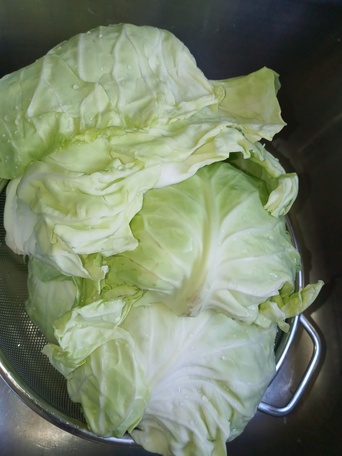
Probably another 45 minutes to an hour of shredding for 9 cabbages. I used a food processor. You don't have to, but I do. Reasons:
- I have a bad shoulder and hand-cutting 9 cabbages is a LOT.
- Knife-cut cabbage takes a lot longer to ferment.
- Time.
FOURTH: I add 1 tbsp of non-idodized salt to each cabbage, after shredding. Then I cut up my dill and garlic ("enough" - I am aiming to be that grandma who drives you nuts by not having measurements for anything with her recipes) and add those to the Very Large Containers. 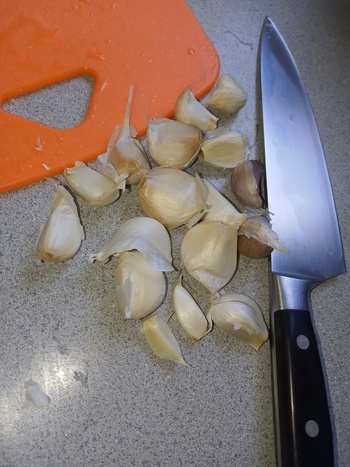
FIFTH: I hand-mix all the ingredients together in the Very Large Containers. They're well-salted, so now I will wait a bit.
SIXTH: Massage energetically and/or bash with a wooden mallet to break the cell walls and really get the juice out of the cabbage. Leaving the shreds in salt will make the salt do much of the work. That's a win in my book!
SEVENTH: When it looks nice and juicy (reduced by about half in fluffiness), shove into the crocks, making sure to not leave any air pockets. Use wooden mallet and fist to really bash it in there. (I can shove 4-5 cabbages in one gallon-sized crock. Shove. Shove hard). Leave some space (it will grow a bit). Then add your cabbage leaves to prevent most of the little bits of shredded veg from floating, put your weights in, and top off with brine if needed or wanted. (A good inch of brine over the top of the weights is a happy thing).
EIGHTH: I put the lids on the crocks, find a good spot for them to hang out for a couple of weeks (usually on my dining table, which is not optimum, but it's what I've got), and then pour water in the seals to seal them up (but let bubbles out).
NINTH: Go away. Keep an eye on the seals, make sure the water doesn't evaporate (aka you will be adding water).
TENTH: Check 'em in a week or two, when you feel in your heart that it should be ready (because it stopped bubbling and your house no longer smells like sauerkraut). When it's good, it's good.
ELEVENTH: Clean and scald your jars, and move the kraut into the jars. Refrigerate and distribute. Discard the cabbage-leaf sealers. Clean and scald out your crocks. Eat yummy kraut.

